
.thumb.jpg.a858dd42891f6e0a00aae90a411db6b3.jpg)
Showing content with the highest reputation since 04/11/2020 in Posts
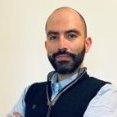
Sai Lavanya Patnala and 4 others reacted to Diego Rolando Hernández Espinosa for a topic
.thumb.jpg.a858dd42891f6e0a00aae90a411db6b3.jpg)
Sai Lavanya Patnala and 4 others reacted to Hugo Sanchez-Castillo for a topic
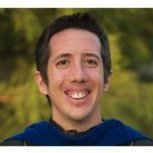
Sai Lavanya Patnala and 4 others reacted to Brandon Coventry for a topic
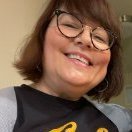
Soaleha Shams and 4 others reacted to Kristen Ashley Horner for a topic

Julian Naizaque and 4 others reacted to Maira Bicca for a topic

KathiaRamirez and 4 others reacted to Maira Bicca for a topic

Sai Lavanya Patnala and 3 others reacted to Daisy Gallardo for a topic
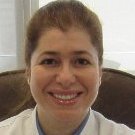
Sai Lavanya Patnala and 3 others reacted to valeria muoio for a topic
.thumb.jpg.80273b006a4858693e7aef1cfc7bbc41.jpg)
Bianca Williams and 3 others reacted to Katrina Armstrong for a topic
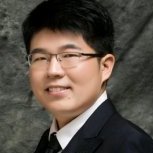
Soaleha Shams and 3 others reacted to Bin Yin for a topic
Soaleha Shams and 3 others reacted to Julia Araujo for a topic
Julian Naizaque and 3 others reacted to Isis Nem De Oliveira Souza for a topic
Isis Nem De Oliveira Souza and 3 others reacted to Marangelie Criado Marrero for a topic

Japhet Kineze and 2 others reacted to valeria muoio for a topic
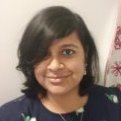
Bianca Williams and 2 others reacted to Jayalakshmi Viswanathan for a topic
.thumb.jpg.a858dd42891f6e0a00aae90a411db6b3.jpg)
Sai Lavanya Patnala and 2 others reacted to Hugo Sanchez-Castillo for a topic

Bianca Williams and 2 others reacted to Diego Rolando Hernández Espinosa for a topic

Japhet Kineze and 2 others reacted to Brandon Coventry for a topic
.thumb.jpg.a858dd42891f6e0a00aae90a411db6b3.jpg)
Sam Staples and 2 others reacted to Hugo Sanchez-Castillo for a topic
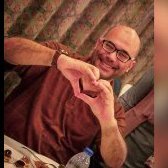
Bianca Williams and 2 others reacted to Wael Mohamed for a topic
Hugo Sanchez-Castillo and 2 others reacted to Julia Araujo for a topic
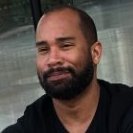
Bianca Williams and 2 others reacted to Mathew Abrams for a topic
.thumb.jpg.a858dd42891f6e0a00aae90a411db6b3.jpg)
Bianca Williams and 2 others reacted to Hugo Sanchez-Castillo for a topic

Soaleha Shams and 2 others reacted to valeria muoio for a topic
Ricardo Augusto Leoni de Sousa and 2 others reacted to Stephanie Vose for a topic

KathiaRamirez and 2 others reacted to Maira Bicca for a topic

Isis Nem De Oliveira Souza and 2 others reacted to Maira Bicca for a topic
Rodrigo Paz and 2 others reacted to Stephanie Vose for a topic
Aneisha Lewis and 2 others reacted to Isis Nem De Oliveira Souza for a topic
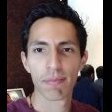
Rodrigo Paz and 2 others reacted to Julian Naizaque for a topic
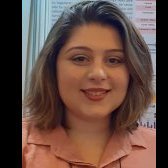
Aneisha Lewis and 2 others reacted to Raquel Maria Campos for a topic
Stephanie Vose and 2 others reacted to Isis Nem De Oliveira Souza for a topic

Bianca Williams and one other reacted to Jayalakshmi Viswanathan for a topic

Hugo Sanchez-Castillo and one other reacted to Jayalakshmi Viswanathan for a topic

Sai Lavanya Patnala and one other reacted to Daisy Gallardo for a topic
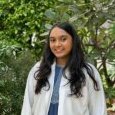
Bianca Williams and one other reacted to Sai Lavanya Patnala for a topic
Bianca Williams and one other reacted to Julia Araujo for a topic

Sam Staples and one other reacted to Mathew Abrams for a topic

Julia Araujo and one other reacted to Mathew Abrams for a topic

Bianca Williams and one other reacted to valeria muoio for a topic
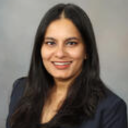
Bianca Williams and one other reacted to Soaleha Shams for a topic
Laura Baquedano Santana and one other reacted to Stephanie Vose for a topic
Stephanie Vose and one other reacted to Rodrigo Paz for a topic

Isis Nem De Oliveira Souza and one other reacted to Raquel Maria Campos for a topic
Stephanie Vose and one other reacted to Ramiro Tintorelli for a topic
Raquel Maria Campos and one other reacted to Isis Nem De Oliveira Souza for a topic

Isis Nem De Oliveira Souza and one other reacted to Maira Bicca for a topic
Isis Nem De Oliveira Souza and one other reacted to Aneisha Lewis for a topic
Raquel Maria Campos and one other reacted to Yorka Munoz for a topic
Raquel Maria Campos and one other reacted to Yorka Munoz for a topic
